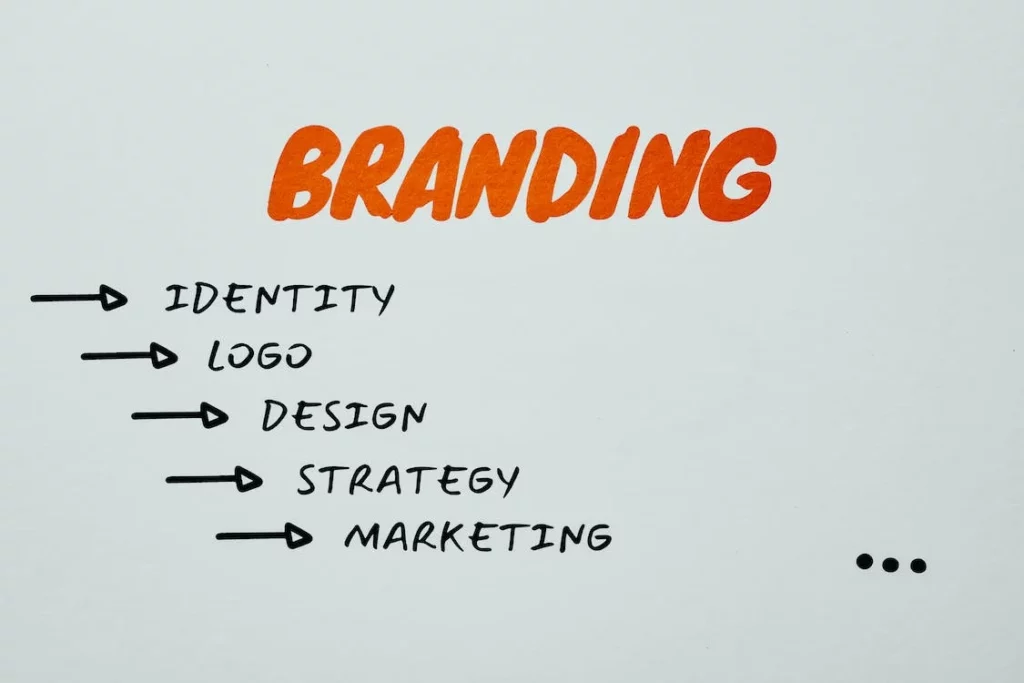The demand for leadership coaches is on the rise. Most global organizations are investing in leadership coaching to help their employees overcome significant challenges and keep their chin up in a highly competitive market. According to a 2021 study conducted by the Sounding Board and Chief Learning Officer, more than 70 percent of companies provide leadership coaching to their employees. Almost 40 percent of these companies have revealed that there has been an increase in investment over leadership coaching from 2020 to 2021.
Even with the rising demand for leadership coaching among corporates, there’s no dearth of leadership coaches globally. An International Coaching Federation (ICF) survey released that there are approximately 71,000 coaches practicing worldwide. When supply meets demand, how do you plan to keep yourself ahead of the pack? The only way you can corner the market is by creating your own leadership coaching brand.
Now, what is branding? According to famous marketing consultant John Jantsch, it is “the art of becoming knowable, likable and trustable”. And as a coach you are known, liked and trusted for your experience, skill and personality. You may consider your branding a success if your clients connect with it on a more personal level and feel at ease collaborating with you. It’s your brand that sets you apart from other coaches and helps create an authority even within the same niche. Highly effective personal branding for coaches helps build business credibility and connect with the who’s who of the industry.
Here’s a look at some of the most effective exercises that you can bring into play to create a powerful coaching brand of your own.
Effective brand building strategies in leadership coaching
Building a powerful leadership coaching brand or value proposition is an integral part of your leadership coaching business marketing strategy. Where hundreds and thousands of leadership coaches are waiting out there to make it big in the industry, it’s your unique branding that will help bring you relevance in your niche and popularity among your ideal clients. Here are few strategies that ensure powerful branding for coaches:
1. The power of a well-crafted coach profile
A powerful and well-crafted coach profile may go a long way in creating personal branding for coaches. Before choosing an institute for higher education, you go through the websites of different colleges to see what fits your requirements. When applying for a job, you read through different job profiles prior to sending the application. Similarly, the first thing a client notices is your coach profile and compares it with others in the business before zeroing in on one.
Your ideal clients can get a fair idea of what they can expect from you from the coaching profile itself. It is, therefore, very important to create a coach profile that’s unique, promising and can sell itself to the client.
An impactful coach profile should be able to hit the pain points of the target audience, identifying their problems and coming up with perfect solutions. Branding for coaches should be more about your clients and less about yourself. Here’s how you can create an effective coach profile that will strengthen your personal brand:
- Communicate the value your coaching program will add to your client’s life and how your coaching is different from that of your competitors
- Talk about your niche and how your expertise will help address the challenges faced by your prospects
- Keep it relevant, short and simple, use language that’s lucid
- Mention your relevant qualifications and credentials
- Incorporate testimonials and case studies to showcase that others with similar challenges have benefitted from your sessions
- Put in your contact details so that your prospects may connect with you if interested
2. Arm yourself with a certificate from a reputable institute
As we all know, coaching is an unregulated industry. Individuals do not have to have a specific degree to call themselves coaches. Hence, arming yourself with a coaching certificate from a well-known institute will set you apart from the rest.
Earning credentials means you have been through rigorous training. This reinforces your legitimate authority in your niche. Building credibility and authority in your niche helps your reputation and brand value grow exponentially.
Moreover, your clients are convinced that you are armed with the required knowledge and tools to help them. Hence, you come across as more reliable when it comes to running a high-impact leadership coaching business. This gives you a jump start toward building a powerful leadership coaching brand. That’s not all! You build your brand on the best practices of the industry and high standards.
Want to get better at your leadership coaching craft?
We have listed the must-have resources here
3. The importance of brand positioning
In branding for professional coaches, it is the position of a coach that is at the core of any successful brand building strategy. And when it comes to brand positioning, it’s only you who can maneuver how your prospects perceive, think or feel about you as a leadership coach.
A powerful brand positioning stands on six pillars: Target Groups, Demands, Advantages, Causes, Comparative Framework and Brand Character. When you focus on these elements, it becomes easier for you to establish your brand authority among your target audience. Afterall, you can escalate your brand value by what you do and not by what you say.
4. Give coaching sessions your personal touch
According to Hanna Hermanson, a life and business coach herself, “branding is not about a logo, tagline or colour scheme. It’s all about being a real person and starting conversations that inspire.”
While personal branding for coaches, your clients occupy the center stage. Hence, the best way to build a powerful personal brand for yourself is to stay invested in your clients and their challenges.
Bring in your personal touch by sharing personal anecdotes during the sessions. The secret ingredient to building trust and a solid rapport with your clients lies in being authentic in your communication. When you share real life stories or narrate similar vulnerable situations which you were actually in, your clients identify themselves with you instantly. This helps them open up about their issues far more effortlessly.
Ask questions about relevant personal issues without getting too personal. Show real curiosity about the problems and challenges for which they have signed up with you.
This personal touch helps in building a strong rapport with your clients. This, in turn, helps establish an authentic and trustworthy personal brand within and outside the niche.
5. Showcase your USP
Identify what your unique selling points are and market them well. If you think your coaching methodology works wonders, conduct a short but free trial session with your potential client. You may find that the prospects themselves are scheduling the next session with you. Here, your action speaks louder than your words.
If your forte is to write valuable and outcome-driven pieces, use them to your advantage. Create content that is truly relevant and beneficial in solving niche-specific issues. You may publish blog posts, write e-books or share content via any other marketing channels. The more useful your content, the more relevant your brand.
6. Make the most of social media
The Internet has taken the coaching world by storm. In order to expand your brand and reach out to a wider audience, it’s very important to have a solid social media marketing strategy. This includes podcasts, posting on social media such as Facebook live, Instagram, Twitter, YouTube shorts, etc. When you post consistently and share valuable information, you gradually acquire your audience’s trust which is an integral part of building your coaching brand.
Connect with your prospects via social media platforms. Platforms such as LinkedIn are frequented mostly by professionals. Create a LinkedIn profile that’s in alignment with your brand image. Make your presence felt by actively participating in relevant conversations on the platform, offer your ideas and provide required solutions wherever possible.
Facebook is another popular platform where you can find professional groups. Expand your brand by reaching out to potential clients by becoming members of relevant Facebook groups, engage in niche-specific discussions, offer solutions and post relevant content to further your brand image.
7. Connect and collaborate with fellow coaches
Your brand can get to prominence and establish itself as a reliable one if it’s associated with other already established coaches. Connect and collaborate with other leadership coaches who already have a wide range of followers and clients working with them.
Collaborating and creating content with them will help you increase your audience as well as earn their trust, so you can expand your client base.
8. Brand building with old and existing clients
A vital part of your association with your clients is to record your success stories and showcase it to the world. Stories work as a proof to your promises, and are always a great way to tell your potential clients how effective your services are, how your coaching strategies brought value for your old and existing clients, and how your new clients can reap a similar benefit if they engage with you. Build credibility with success stories – It’s simple, fast and effective.

Want to know everything it takes to build a coaching brand?
Our ‘Building Your Brand as a Coach’ guide gives you a detailed tour of the world of branding for coaches!
In a nutshell
Never underestimate the power of a brand. Your brand is perhaps your greatest differentiator among competitors in the industry. Powerful branding for coaches provides transparency on what you have to offer, helps build trust and credibility, attracts attention and interest, and sets you apart in a crowd. If you invest in brand-building at an early stage in your coaching business, you will start seeing results soon.
Sources:
Globalcoachgroup, Coachingfederation, Matrrix, Globenewswire, Vistage, Forbes, Entrepreneur, Executivecoachcollege, Chieflearningofficer, Soundingboard, Shrm
FAQs
1. Why is branding for coaches important?
Building a powerful leadership coaching brand is important because of multiple reasons. It helps you establish authority and enhance credibility in your specific field. It’s your personal brand that helps you stay ahead of the pack and make a lasting impact. That’s not all! It gives you access to a wider audience and helps reach out to industry experts.
2. Has demand for leadership coaches grown remarkably/exponentially in recent times?
Yes, the demand for leadership coaches has grown remarkably in recent times. During a time when the world has embraced remote working, leadership coaches are in high demand as they encourage engagement and enhance job satisfaction among corporate leaders. It gives a high return on investment (ROI). It is believed to be more impactful compared to other management training programs.
3. What are the qualities you need as a leadership coach to be on top of your game?
If you are a leadership coach and wish to stay on top of your game, you should be a consistent learner. The best leadership coaches speak from experience. This also makes them emotionally intelligent. Hence, learning from your own experience and sharing the same with your clients helps both you and your client achieve the desired goal more effectively. To get the best result, a coach should set practical goals and hold the coachee accountable for his actions related to the coaching program.
About Simply.Coach
Simply.Coach is an enterprise-grade coaching software designed to be used by individual coaches and coaching businesses. Trusted by ICF-accredited and EMCC-credentialed coaches worldwide, Simply.Coach is on a mission to elevate the experience and process of coaching with technology-led tools and solutions.
Read More:
Developing a Coaching Plan for Leaders, Teams, and Clients
3 Leadership Coaching Books to Help You Get Better at Your Craft
The Leadership Coaching Process and Framework – A Guide
6 Core Leadership Coaching Skills to Embrace for Maximum Impact
Well Begun Is Half Done: The Mantra for Leadership Coaching Success

Content Specialist @Simply.Coach
Jayashree Mukherjee is a content specialist by day and a content junkie (on OTT) by night. Passionate about traveling, street food and overturning the underuse of em dashes — she would have been a globe-trotter if she hadn’t been so lazy.









